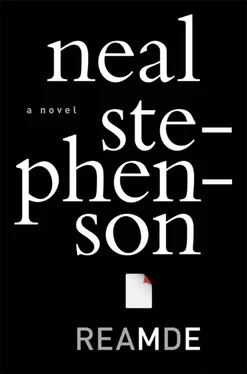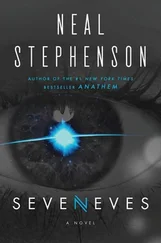THE FORTHRAST FARM
Northwest Iowa
Thanksgiving
Richard kept his head down. Not all those cow pies were frozen, and the ones that were could turn an ankle. He’d limited his baggage to a carry-on, so the size 11s weaving their way among the green-brown mounds were meshy black cross-trainers that you could practically fold in half and stuff into a pocket. He could have gone to Walmart this morning and bought boots. The reunion, however, would have noticed, and made much of, such an extravagance.
Two dozen of his relatives were strung out in clumps along the barbed-wire fence to his right, shooting into the ravine or reloading. The tradition had started as a way for some of the younger boys to blow off steam during the torturous wait for turkey and pie. In the old days, once they’d gotten back to Grandpa’s house from Thanksgiving church service and changed out of their miniature coats and ties, they would burst out the doors and sprint half a mile across the pasture, trailed by a few older men to make sure that matters didn’t get out of hand, and shoot .22s and Daisies down into the crick. Now grown up with kids of their own, they showed up for the re-u with shotguns, hunting rifles, and handguns in the backs of their SUVs.
The fence was rusty, but its posts of Osage orange wood were unrotted. Richard and John, his older brother, had put it up forty years ago to keep livestock from straying down into the crick. The stream was narrow enough that a grown man could cross it with a stride, but cattle were not made for striding, or bred for intelligence, and could always contrive some way to get themselves into terrible straits along its steep, crumbling banks. The same feature made it an ideal firing range. Summer had been dry and autumn cold, so the crick was running low under a paper-thin glaze of ice, and the bank above it threw up gouts of loose dirt wherever it stopped a bullet. This made it easy for the shooters to correct their aim. Through his ear protectors, Richard could hear the voices of helpful onlookers: “You’re about three inches low. Six inches to the right.” The boom of the shotguns, the snap of the .22s, and the pow, pow, pow of the semiautomatic handguns were reduced to a faint patter by the electronics in the hearing protectors—hard-shell earmuffs with volume knobs sticking out of them—which he’d stuffed into his bag yesterday, almost as an afterthought.
He kept flinching. The low sun shone in the face of a two-hundred-foot-tall wind turbine in the field across the crick, and its blades cast long scything shadows over them. He kept sensing the sudden onrush of a bar of darkness that flicked over him without effect and went on its way to be followed by another and another. The sun above blinking on and off with each cut of a blade. This was all new. In his younger days, it had only been the grain elevators that proved the existence of a world beyond the horizon; but now they had been supplanted and humbled by these pharaonic towers rearing their heads above the prairie, the only thing about this landscape that had ever been capable of inspiring awe. Something about their being in motion, in a place where everything else was almost pathologically still, seized the attention; they always seemed to be jumping out at you from behind corners.
Despite the wind, the small muscles of his face and scalp—the parents of headaches—were relaxed for the first time since he had come back to Iowa. When he was in the public spaces of the re-u—the lobby of the Ramada, the farmhouse, the football game in the side yard—he always felt that all eyes were on him. It was different here, where one had to attend to one’s weapons, to make sure that the barrels were always pointed across the barbed wire. When Richard was seen, it was during terse, one-on-one conversations, spoken DIS-TINCT-LY through ear protection.
Younger relations, rookie in-laws, and shirttails called him Dick, a name that Richard had never used because of its association, in his youth, with Nixon. He would answer to Richard or to the nickname Dodge. During the long drive here from their homes in the exurbs of Chicago or Minneapolis or St. Louis, the parents would brief the kids on who was who, some of them even brandishing hard copies of the family tree and dossiers of photos. Richard was pretty sure that when they ventured out onto Richard’s branch of the family tree—and a long, stark, forkless branch it was—they got a certain look in their eyes that the kids could read in the rearview mirror, a tone of voice that in this part of the country said more than words were ever allowed to. When Richard encountered them along the firing line, he could see as much in their faces. Some of them would not meet his eye at all. Others met it too boldly, as if to let him know that they were on to him.
He accepted a broken twelve-gauge side-by-side from a stout man in a camouflage hat whom he recognized vaguely as the second husband of his second cousin Willa. Keeping his face, and the barrel of the weapon, toward the barbed-wire fence, he let them stare at the back of his ski parka as he bit the mitten from his left hand and slid a pair of shells into the warm barrels. On the ground several yards out, just where the land dropped into the ravine, someone had set up a row of leftover Halloween pumpkins, most of which were already blasted to pie filling and fanned across the dead brown weeds. Richard snapped the gun together, raised it, packed its butt in snugly against his shoulder, got his body weight well forward, and drew the first trigger back. The gun stomped him, and the base of a pumpkin jumped up and thought about rolling away. He caught it with the second barrel. Then he broke the weapon, snatched out the hot shells, let them fall to the ground, and handed the shotgun to the owner with an appreciative nod.
“You do much hunting up there at your Schloss, Dick?” asked a man in his twenties: Willa’s stepson. He said it loudly. It was hard to tell whether this was the orange foam plugs stuffed into his ears or sarcasm.
Richard smiled. “None at all,” he replied. “Pretty much everything in my Wikipedia entry is wrong.”
The young man’s smile vanished. His eyes twitched, taking in Richard’s $200 electronic hearing protectors, and then looked down, as if checking for cow pies.
Though Richard’s Wikipedia entry had been quiet lately, in the past it had been turbulent with edit wars between mysterious people, known only by their IP addresses, who seemed to want to emphasize aspects of his life that now struck him as, while technically true, completely beside the point. Fortunately this had all happened after Dad had become too infirm to manipulate a mouse, but it didn’t stop younger Forthrasts.
Richard turned around and began to mosey back the way he had come. Shotguns were not really his favorite. They were relegated to the far end of the firing line. At the near end, beside a motorcade of hastily parked SUVs, eight- and ten-year-old children, enveloped in watchful grown-ups, maintained a peppery fusillade from bolt-action .22s.
Directly in front of Richard was a party of five men in their late teens and early twenties, orbited by a couple of aspirant fifteen-year-olds. The center of attention was an assault rifle, a so-called black gun, military-style, no wood, no camouflage, no pretense that it was made for hunting. The owner was Len, Richard’s first cousin once removed, currently a grad student in entomology at the University of Minnesota. Len’s red, wind-chapped hands were gripping an empty thirty-round magazine. Richard, flinching every so often when a shotgun went off behind him, watched Len force three cartridges into the top of the magazine and then hand it to the young man who was currently in possession of the rifle. Then he stepped around behind the fellow and talked him patiently through the process of socketing the magazine, releasing the bolt carrier, and flipping off the safety.
Читать дальше





